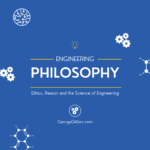Discovery of Lessons Learned in New Product Development

Lessons Learned – Concept for the Complex Product Development
Introduction: Lessons Learned
The purpose of this article is to delve into the various sources of Lessons Learned that are particularly relevant to complex vehicle assemblies and to discuss how these insights impact new product development.
Generally, in the fast-paced world of vehicle product development, understanding and implementing the Lessons Learned from past projects is crucial to success. Furthermore, as technology evolves, so do the complexities of developing modern vehicles, which consist of intricate systems and components that must function harmoniously.
Therefore, by carefully analyzing past experiences, manufacturers can mitigate risks, enhance reliability, and ensure the quality of their products, ultimately leading to greater customer satisfaction and brand loyalty.
Types of Lessons Learned
Overall, in vehicle product development, Lessons Learned can be derived from various sources. Fundamentally, these insights are not limited to the final stages of production but span the entire product development lifecycle, from initial research and development to post-market feedback. Hence, the following are key areas where valuable lessons can be learned:
Manufacturing
Manufacturing is the backbone of any product development process. Therefore, the transition from design to production often reveals unforeseen challenges. Consequently, Lessons Learned in manufacturing include issues related to material selection, production methods, and process optimization. For example, a seemingly minor oversight in material compatibility can lead to significant production delays or failures in the field. Furthermore, by documenting these experiences, engineers can refine manufacturing processes, improve product quality, and reduce production costs. Therefore, this proactive approach helps prevent the recurrence of similar issues in future projects.
Assembly
Assembly processes are another critical area where Lessons Learned are generated. Moreover, complex vehicle assemblies often involve multiple components and subsystems that must be integrated seamlessly. Therefore, misalignments, incorrect torque specifications, or assembly sequence errors can result in costly rework, warranty claims, or even safety concerns. In addition, Lessons Learned from assembly processes can help in developing more precise assembly instructions, improving tooling designs, and ensuring that assembly lines operate efficiently. Systematically addressing these issues early in the development process, manufacturers can avoid costly delays and improve overall product reliability.
Existing Product in the Field
The real-world performance of existing products provides a treasure trove of information for product developers. Sequentially, feedback from vehicles in the field, including user experiences, operational data, and failure reports, offers insights into how a product performs under actual conditions. Therefore, this data is invaluable for identifying potential weaknesses, understanding customer needs, and driving continuous improvement. For instance, if a particular component consistently fails in the field, this could indicate a design flaw that needs to be addressed in future iterations. Furthermore, by systematically collecting and analyzing this data, manufacturers can enhance the durability and performance of new products.
Warranty
Warranty data is a direct reflection of a product’s reliability and customer satisfaction. Moreover, high warranty claim rates often indicate underlying issues with design, manufacturing, or materials. Therefore, by analyzing warranty data, manufacturers can identify patterns and root causes of failures. Moreover, this information is critical for making informed decisions about design changes, material upgrades, or process improvements. In addition, addressing warranty-related issues promptly not only reduces costs but also helps maintain a positive brand image and customer trust.
Service
Service reports and feedback from technicians provide practical insights into the ease of maintenance, repairability, and long-term durability of a product. Hence, Lessons Learned from the service team can inform design changes that make future products easier to service, reducing downtime and maintenance costs for customers. For example, if technicians frequently report difficulty accessing certain components for repair, this could lead to design modifications that improve accessibility in future models. Additionally, by considering the serviceability of a product during the design phase, manufacturers can create vehicles that are more user-friendly and cost-effective to maintain.
Product Validation and Testing
Initially, product validation and testing are critical stages in the development process where potential issues are identified before a product reaches the market. Therefore, Lessons Learned during testing can highlight areas where the product does not meet performance expectations or where there are safety concerns. Furthermore, these insights are essential for refining product designs and ensuring that they meet all regulatory and customer requirements. For instance, if a vehicle fails a crash test due to structural weaknesses, this information is crucial for making design adjustments that enhance safety. Moreover, by incorporating Lessons Learned from testing into the development process, manufacturers can reduce the risk of costly recalls and improve overall product quality.
Supply Base
The supply base plays a crucial role in product development, as suppliers provide the raw materials, components, and services necessary for production. Fundamentally, Lessons Learned from working with suppliers can include issues related to material quality, lead times, and supplier reliability. For example, a supplier’s inability to meet delivery deadlines can cause production delays, while inconsistent material quality can lead to product failures. Therefore, by carefully managing supplier relationships and documenting lessons learned, manufacturers can ensure a more reliable supply chain, reduce risks, and improve the overall quality of their products.
Advanced Research and Development
Advanced research and development (R&D) activities are where innovative ideas are explored and new technologies are developed. Lessons Learned from R&D projects can include the feasibility of new technologies, the challenges of scaling up prototypes, and the risks associated with adopting cutting-edge solutions. Therefore, by documenting these experiences, manufacturers can make more informed decisions about which technologies to pursue and how to integrate them into their products. For example, if a new material proves difficult to work with in R&D, this knowledge can guide material selection in future projects. In addition, by learning from the successes and failures of R&D efforts, manufacturers can stay ahead of the competition and bring innovative products to market more efficiently.
Other Sources
In addition to the primary sources of lessons learned discussed above, there are other valuable sources of insights that can impact product development. These include feedback from customers, industry trends, regulatory changes, and competitive analysis. Hence, by staying attuned to these external factors, manufacturers can anticipate changes in the market, adapt to new regulations, and respond to customer demands more effectively. For instance, changes in environmental regulations may necessitate the development of more fuel-efficient or electric vehicles. Moreover, by incorporating Lessons Learned from these external sources, manufacturers can ensure that their products remain competitive and compliant with industry standards.
Conclusion – Lessons Learned
In conclusion, the journey of vehicle product development is fraught with challenges, but it is through these challenges that valuable lessons are learned. Overall, the insights gained from manufacturing, assembly, field performance, warranty data, service reports, product validation, supply base interactions, and advanced research and development all contribute to the creation of more reliable and durable products. Therefore, by documenting these lessons and integrating them into standard work processes, manufacturers can avoid repeating past mistakes, mitigate risks, and enhance the quality of their products. In addition, it is essential to remain vigilant and responsive to new knowledge and incoming data, as these are the keys to continuous improvement and success in the ever-evolving automotive industry.
References:
- Engineering Change Request – https://en.wikipedia.org/wiki/Change_management_(engineering)
- Engineering Change Request – https://georgedallen.com/engineering-change-requests-ecr-new-best-practices/
- Theory of Change – https://georgedallen.com/theory-of-engineering-change-in-new-product-development/
- Theory of Chaos – https://georgedallen.com/navigating-chaos-systems-engineering-in-vehicle-occupant-sensing/
- Impact Analysis – https://georgedallen.com/impact-analysis-of-the-new-engineering-change/
- Peer Review – https://georgedallen.com/new-peer-review-process-craft-advanced-tech/
About George D. Allen Consulting:
George D. Allen Consulting is a pioneering force in driving engineering excellence and innovation within the automotive industry. Led by George D. Allen, a seasoned engineering specialist with an illustrious background in occupant safety and systems development, the company is committed to revolutionizing engineering practices for businesses on the cusp of automotive technology. With a proven track record, tailored solutions, and an unwavering commitment to staying ahead of industry trends, George D. Allen Consulting partners with organizations to create a safer, smarter, and more innovative future. For more information, visit www.GeorgeDAllen.com.
Contact:
Website: www.GeorgeDAllen.com
Email: inquiry@GeorgeDAllen.com
Phone: 248-509-4188
Unlock your engineering potential today. Connect with us for a consultation.

